Talking movies | Cloud
Welcome to hell. Rise and grind.
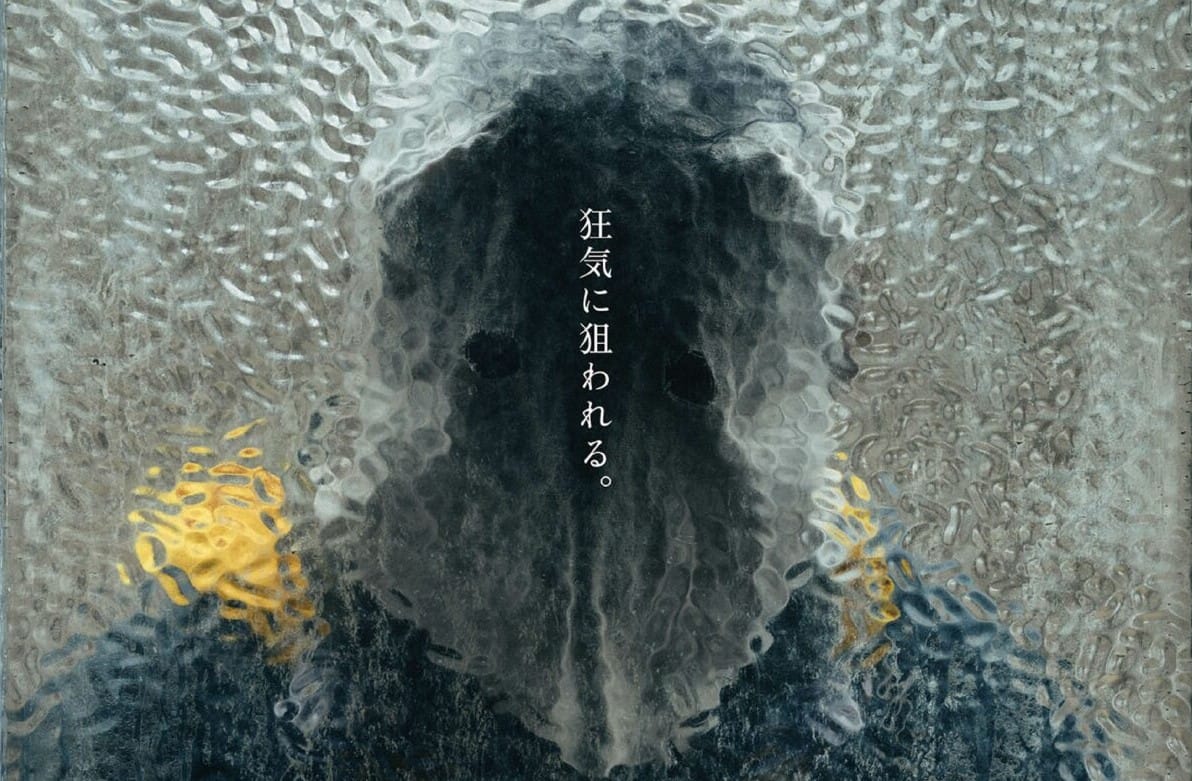
The internet has changed. Where once were hobbyist forums with glittered signatures and personal websites made in poor HTML and multiple competing video services all filled to the brim with home videos and dominating sites could be dedicated to a single joke and there were multiple homes for early flash animators of all types and MUD servers were just a matter of course and ASCII art was a must for fan written game walkthroughs and Let’s Plays were done in text and passion ruled in a digital wild west where money was lost instead of made and fame was a couple thousand views, now is nothing but a cornucopia of aspiration and opportunity. Maybe it was inevitable. YouTube owns the video space today with built in ambition stats, carefully designed to encourage everyone to go bigger and better and more mainstream, to fill their content with ads and chase the dream of a sponsorship deal. Social media is overrun with scams and get-rich-quick schemes, outrage and extremism and hate and tragedy nothing but data points to be farmed for engagement to turn into clicks on slave labor t-shirts and cheap spiritual crystals sold for unreasonable prices. Techbros, always on the hunt for new ways to hack the system and soak up riches, have flooded the pipes on every level with schemes like crypto and NFTs which are built on false promises of important real-world use but only amount to imaginary stock market gambling. But they gotta make them, and we gotta sell, and I gotta work work work, because the internet isn’t what it once was. It’s all about the hustle now.
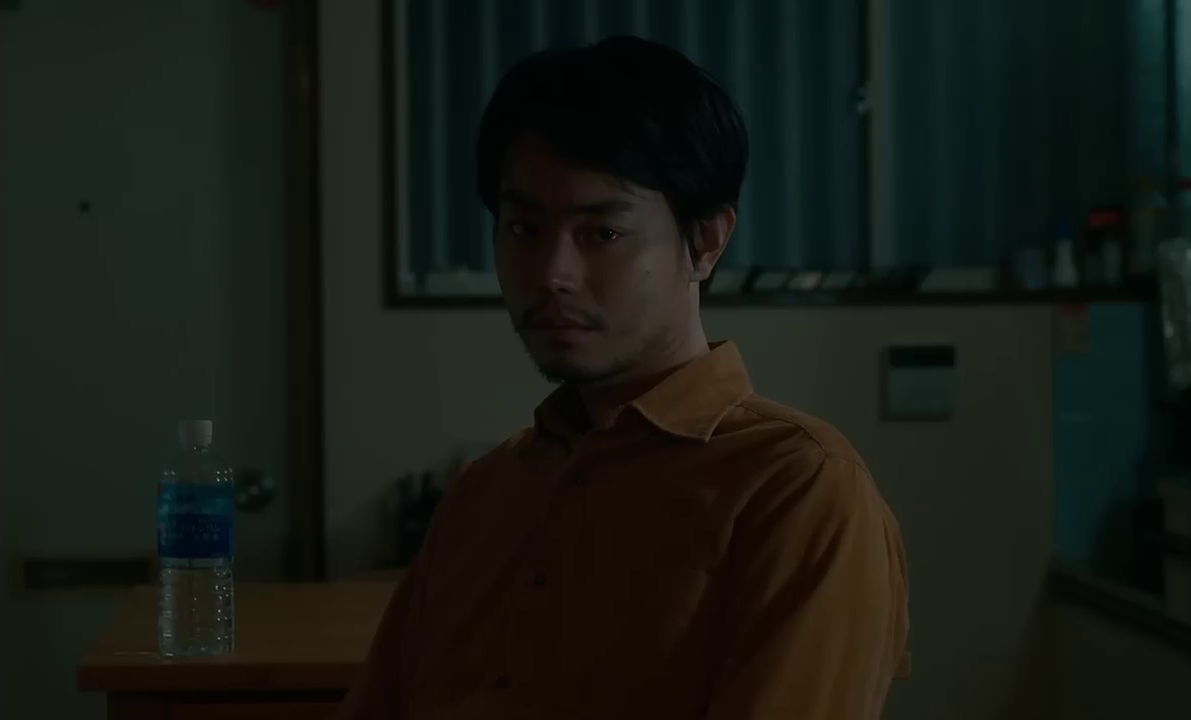
Yoshi, the protagonist of Kiyoshi Kurosawa’s latest film, Cloud, is like all of us: teetering on the edge of modern internet capitalism. Starting the movie as a factory worker left deeply unfulfilled by his monotonous, decidedly unglamorous work folding shirts, he spends his free time moonlighting as an online reseller, a man who cheats people out of inventory at low costs, then upsells to anonymous internet customers who don’t know any better. He lives in a constant gamble, betting all his money—his entire life—on anime figurines and Fire Emblem-like Switch games. He buys, then puts up for sale, then sits and watches his computer screen for hours at a time, waiting for someone to bite.
It’s hard to blame him, at least in the beginning. Our world has been ruled by money ever since it was invented and the rate it has strengthened its grip has only ever accelerated. How could I not sympathize with someone who, living in a cheap apartment and working an empty job, dreams of the comfort and security only money can get you? I hardly make enough money to live! I get it, and I know most of you do, too! It’s why “selling out” is a dead idea, why we now collectively celebrate getting that bag, why we don’t condemn but applaud the hustle.
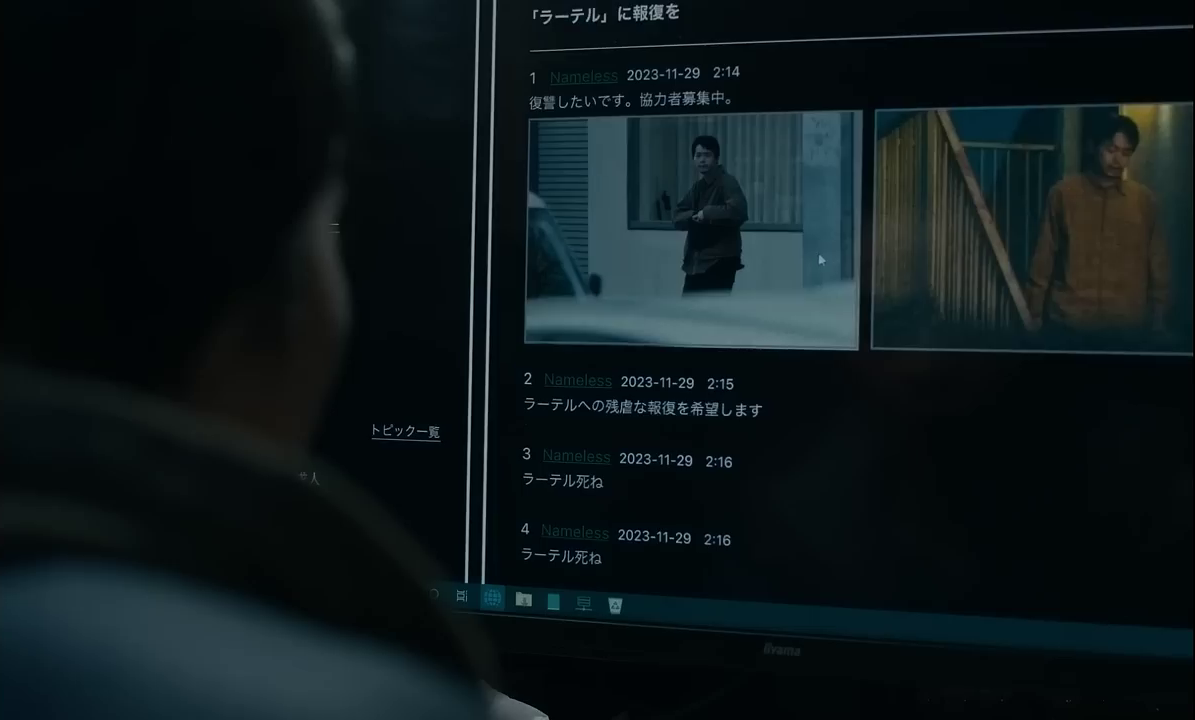
But then, it all goes far beyond money (even without ever escaping it—you can never escape money). The companies that now rule the web have more time and money than anyone can ever comprehend and use it to develop ways to keep our dumb eyes scrolling and refreshing in-perpetuity and it’s not a secret. It’s just as much about attention and obsession and fame as it is finance.
When Yoshi, played by Masaki Suda (you know, Philip from Kamen Rider W) with a bottled up distance, uploads a new batch of listings on an Amazon-esque site and sits and watches the screen, waiting expectant for things to change…I feel it in my core. I’ve certainly been guilty a dozen times over of refreshing every five seconds and returning to sites non-stop throughout the day for the mild dopamine of a single like. (peep my twitter likes when I share this. I’ll get like, maybe ten and I’ll feel like a king. yeah, no big deal, I’m just what we call a micro-celeb. on my way to the top, baby)
But you can feel that there’s something wrong with it all. The money comes in, the attention washes over, and yet things aren’t quite right. It’s the same for Yoshi, but for him this internet-born anxiety of attention and money is literalized in increasingly terrifying ways. Strange things keep happening him: A dead rat bundled in a newspaper on his apartment steps, the feeling of somebody behind him on the bus, a metal wire tied taut across the road he’s driving his moped on.
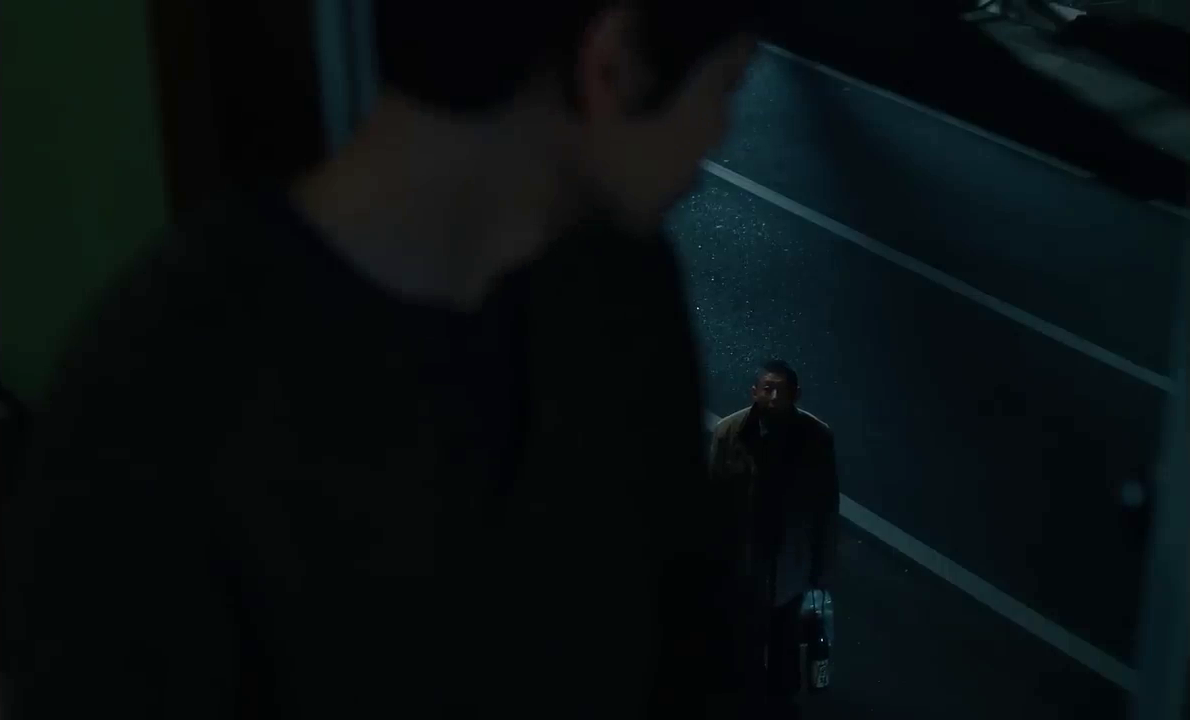
Kurosawa, one of contemporary Japan’s most essential directors most known for his work directing titles like the ambiguous and hypnotic Cure or the internet paranoiac Pulse (and who already released one of 2024’s best in the form of Chime) directs all of this like only Kurosawa can: Filled to the brim with emptiness. It’s maybe the only way to honestly portray the modern internet. Traditional thrills here are turned haunted, drenched in a sense of inevitability. The world here feels both purgatorial and on a constant collision course towards the end, filled with echoing concrete, machinery, and rotting metal rendered through the unnerving clarity of digital filming.
Yoshi ignores all of it of course, this mounting sense that the world is turning against him, and moves into a larger place to focus on reselling. He quits his job and abandons the city, surrounding himself with nothing but silence and nature. And yet that new home of his is full of concrete. It’s a cold place. His world is the internet now. He lives for the hustle.
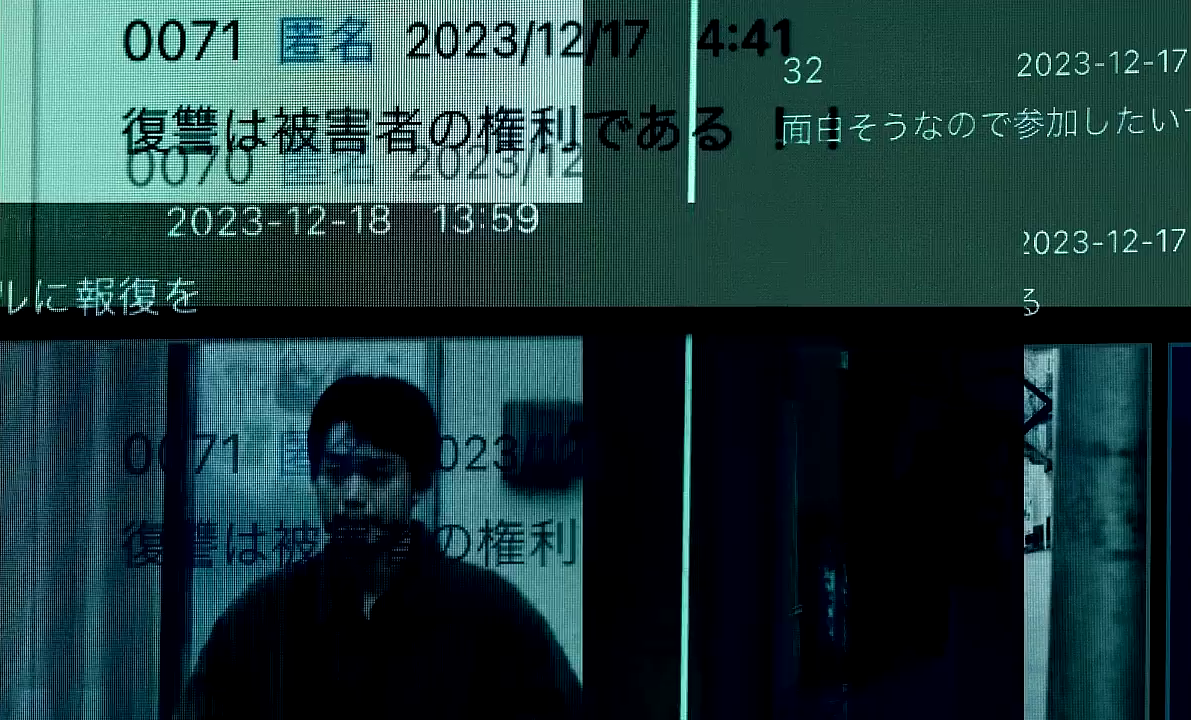
But hey, despite all this the internet is still a place of connection, where people the world over can come together. It’s just that the rapidly increasing capitalist drive that’s spread parasite-like by the ones in power and the on-its-face anonymity of the web that encourages users to let their id out undisguised are two forces that accelerate one another to often violent results.
So it shouldn’t come as too much of a surprise when a group of people wronged by Yoshi—either because their inventory was all but stolen by him in a desperate time, or he sold them knock-offs, or never ever sent their order—team up online to teach him a lesson. For them, violence and revenge is a game, as evidenced by the group first meeting in an arcade; an abstract idea normalized through posting. And it’s at exactly this point that Kurosawa kills the mystery and sends Cloud barreling in a very different direction.
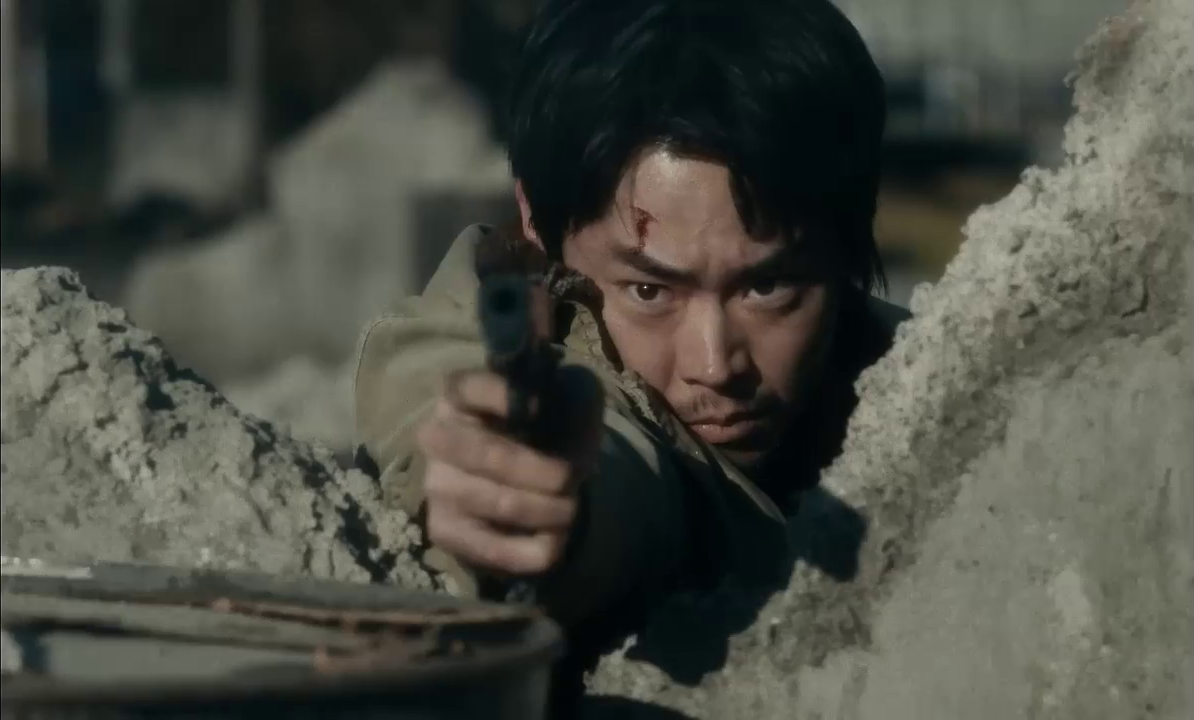
Beyond being a master visual storyteller, Kurosawa is inarguably one of our all-time great directors of noise—or the lack there. The sound of his films are dense and textured, with an eye towards ambient naturalism and Cloud is no exception. Computers hum, factory machinery grumbles and whirrs, the city bustles but with indistinct chatter. It’s all at once open and claustrophobic, an unease built from silence and stillness, which makes the first act of overt violence shown, something thrown through a window, feels like a sort of violence towards the audience as well: an aggressive shattering of the rules you thought you knew.
I won’t spoil where exactly things go, but the low-key, atmospheric boiler is ripped away for a shifting menagerie of thriller sub-genres. There are chases and murders and tortures and lots and lots of guns, all rendered with an intentional hollowness and a through-line of bone dry humor highlighting the stupid absurdity of the whole situation because no matter what happens, what insane horrors or life-changing cruelty, or faces with the abyss Yoshi experiences, his reaction is always the same: Check his phone to see if his anime figurines are selling.
And it’s easy laugh (you should—it’s a funny movie), to be like “this is ridiculous, this would never happen,” and maybe it wouldn’t, not exactly like this, but we’ve sure gotten close. Because in the real world, you don’t need to wrong anyone for them to want to kill you. I mean, we live in an age where lolcows exist—this vile name given to people who have mental disabilities or aren’t “normal” enough for mainstream society and are seen as easy targets for long-term harassment by online communities that get a kick out of driving people to suicide. Worse, these people love to convince their victims they are friends and fans, ironically supporting their passions financially as a way to get more “material” out of them. The way this feedback loop of love and hate develops is…not pretty to think about. Even harassment and murder has become a strange kind of business online.
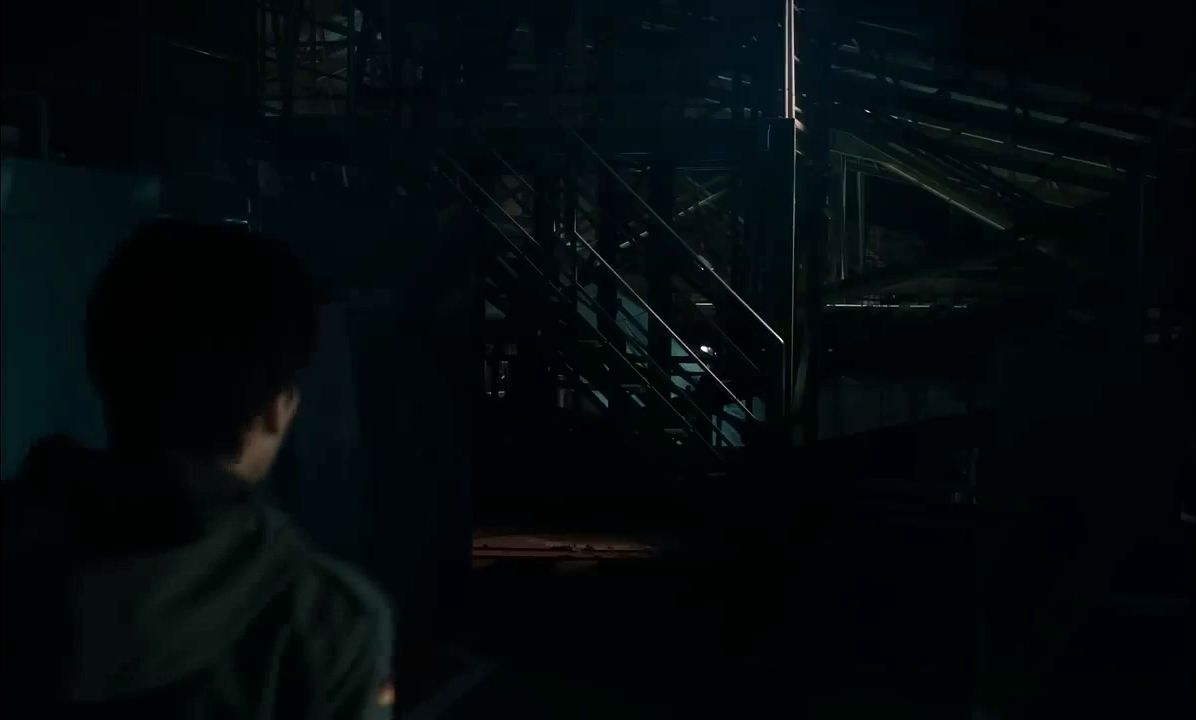
Cloud ends somewhere approaching apocalyptic, Yoshi only more committed to internet reselling than ever. The transition has been completed: His life and his work are now one and the same. What else is he supposed to do? Give up, admit defeat, let the people who attacked him win, cast away ambitions, slink back to a colorless world, throw away comfort and security, let the money he doesn’t have control him instead of the money he does have, let the universe crush him and kill him slowly or quickly or somewhere in-between but definitely kill him somehow someway? What are any of us supposed to do? We’ve got to live after all. We’ve got to work.
Welcome to hell. Rise and grind.
Donate to my ko-fi.
Music of the Week | Parasite Eve: Remixes by Yoko Shimomura
Look I don’t know how to sell this beyond what it says on the tin: the Parasite Eve soundtrack, one of the iconic vibers on PS1 and an incredible piece of experimental RPG horror from Square, remixed for deep house clubbing by several major names of 90s Japanese electronic. Look at the cover, read the title. It’s the easiest slam dunk that’s ever existed and it shatters the backboard.
Book of the Week | The Tokyo Zodiac Murders by Soji Shimada
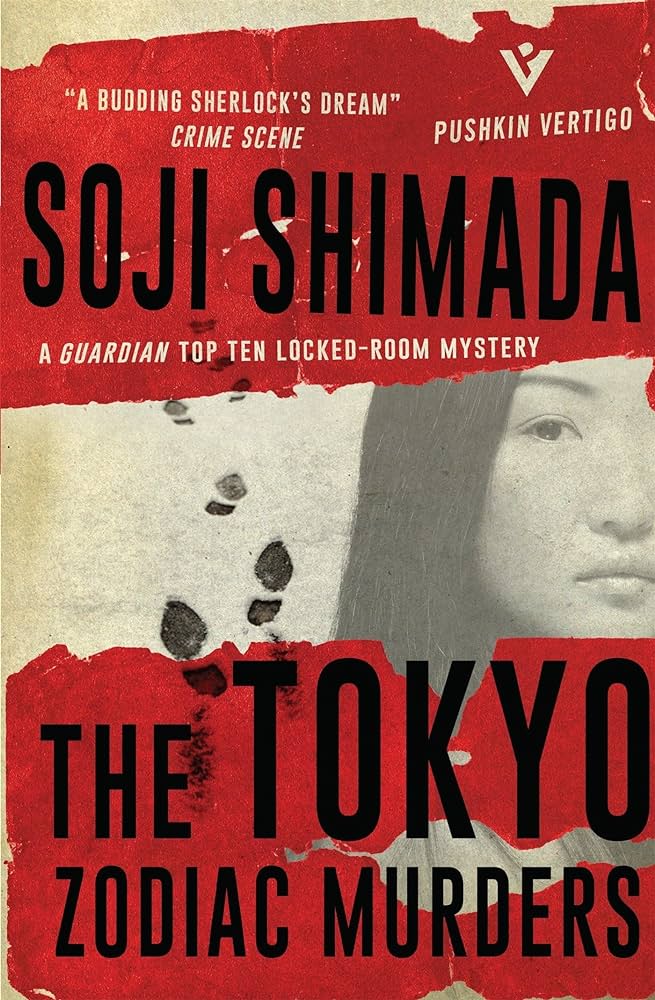
Maybe the great mystery novel, The Tokyo Zodiac Murders is borderline obnoxiously perfect. Spending at least half its story in a single room listening in on two armchair detectives trying to solve an impossible crime, its semi-meta play on the relationship between mystery fiction and reader filtered through debate is clever and twisty enough to make it a classic in itself, but I think what sets the novel apart is how deeply emotional it all ends up. By the end (after the author directly taunts you, the reader, for being too dumb to solve the murder) the solution almost doesn’t matter in the face of overwhelming tragedy and empahty.
Movie of the Week | Baby Assassins (dir. Yugo Sakamoto, 2021)
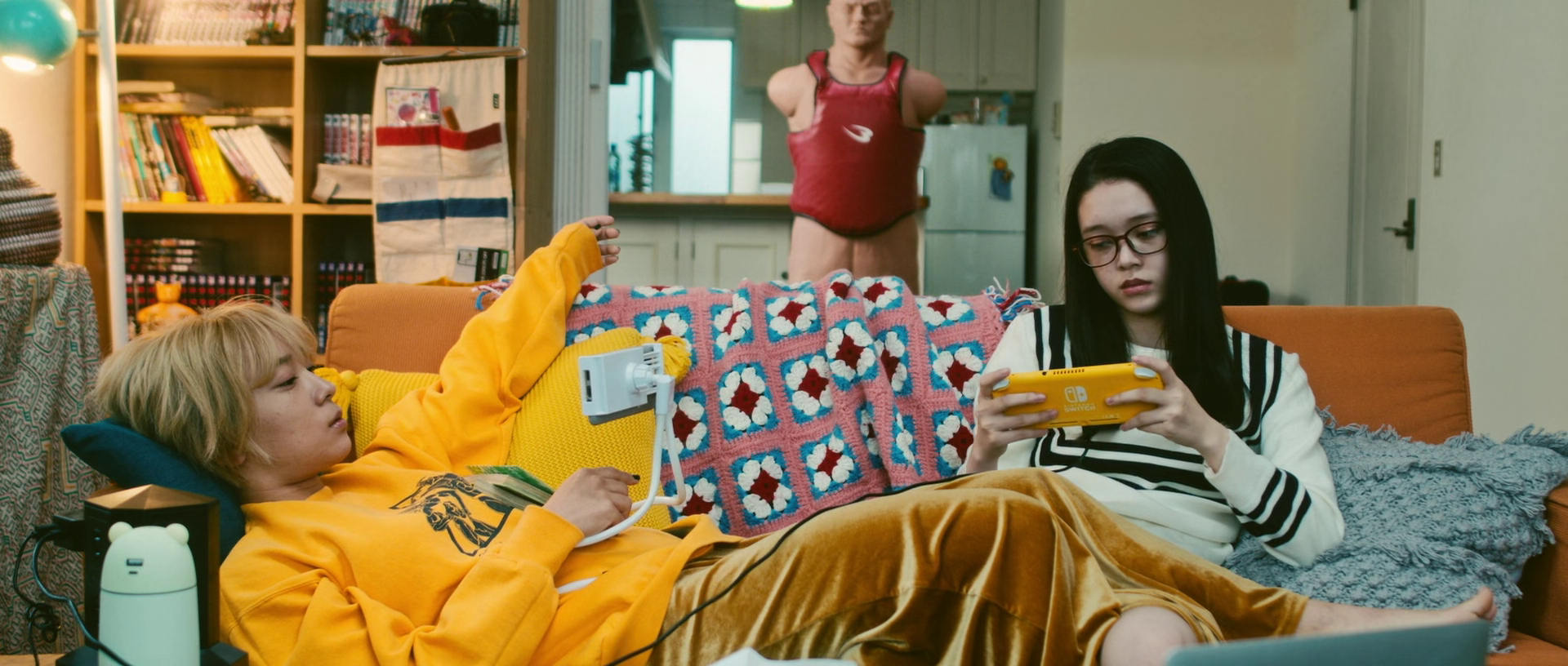
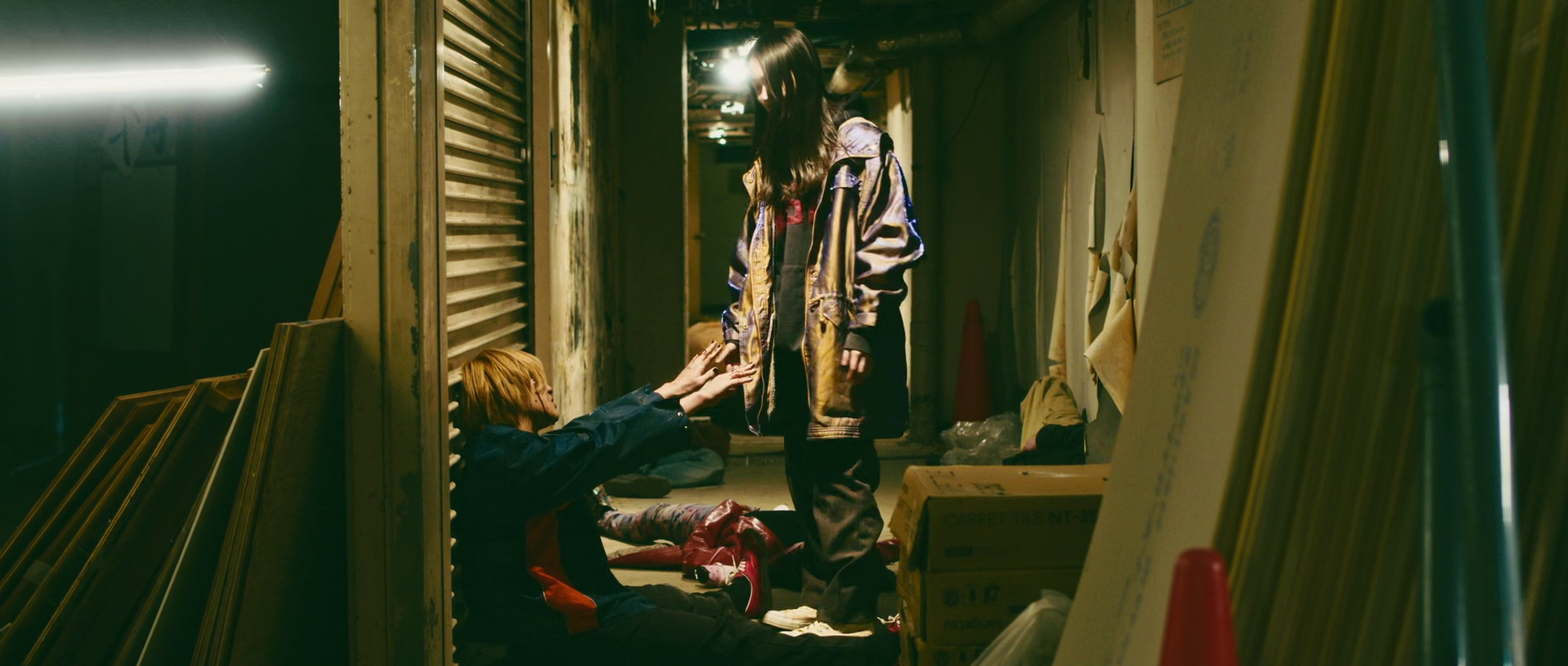
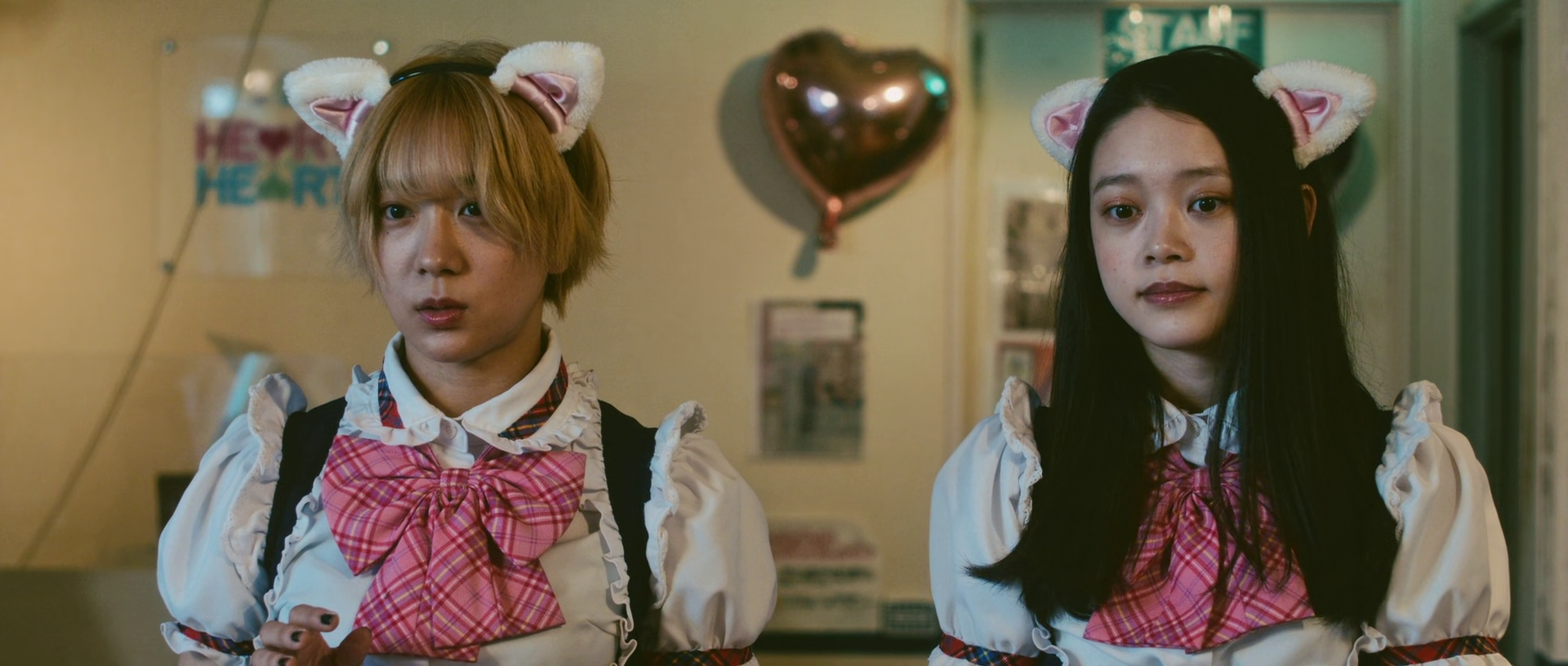
Like some sort of Gen Z John Wick, there’s not much out there that nails modern Japan more than Baby Assassins, a slacker comedy about two young hitmen trying to make a living in Tokyo. The conversations here—which are most of the movie—are laid back, superficial, referential (repping a Lou Reed shirt and yapping about Higurashi while killing a dude…be still my heart) and hilarious as all get out, keenly observed and slathered with a naturalist rhythm. That its occasional moments of action suggest that its entire crew are inevitably going to end up as legends of the genre sooner or later is just icing on the cake. If two cute idiot messes lounging around, watching cat vids, and debating the best torture methods sounds like your jam…then welcome to your new obsession.
Have thoughts about anything covered this week? Got a recommendation you’re dying to share? Want to tell me how handsome and cool I am? Leave a comment below!
oh, and here’s a very exciting new site dedicated to Japanese pop culture!


